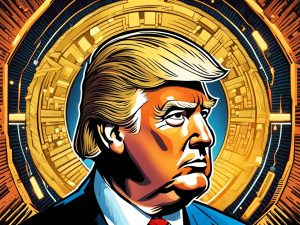Telegram’s Role in Organized Crime: Insights from a Recent UN Report 📊
A new report from the United Nations underscores the impact of the encrypted messaging service Telegram on organized crime activities in Southeast Asia. The report highlights how the platform’s relative lack of regulation has enabled substantial criminal operations, especially as its founder, Pavel Durov, faces his own set of legal challenges this year.
Criminal Enterprises Flourishing on Telegram 🌐
The October 7 findings from the UN reveal that under-regulated digital spaces like Telegram have contributed to the massive growth of scams throughout East and Southeast Asia. These scams, reported to have generated financial losses ranging from $18 billion to $37 billion in 2023, highlight the urgency of addressing this unchecked criminal behavior.
In conjunction with this report, Chainalysis’ 2024 Global Crypto Adoption Index indicates that several countries in Central and Southern Asia and Oceania are among the leading nations embracing cryptocurrency. This creates a unique intersection of emerging technology and heightened criminal activities.
- Key highlights from the UN report include:
- Massive financial gains by criminal organizations exploiting Telegram.
- Governments struggling to keep pace with sophisticated criminal networks.
- The necessity for rapid reforms to counteract these threats.
Masood Karimipour, the UNODC Regional Representative for Southeast Asia and the Pacific, emphasized that the growing alliance among organized crime groups exploits the vulnerabilities within the digital landscape. He stated, “It is vital for governments to recognize and respond to the severe, large-scale challenges posed by these global threats, prioritizing comprehensive strategies to tackle the evolving criminal environment in the region.”
Pavel Durov: Facing Consequences of Platform Abuse ⚖️
Recent legal troubles have emerged for Pavel Durov, the founder of Telegram, particularly after he was criticized for the platform’s failure to mitigate illegal content. On August 24, authorities expressed concerns regarding the app’s management of criminal activities, which has put Durov under scrutiny.
In response to these challenges, Durov released a statement addressing the situation. He acknowledged the necessity for improvement, remarking that the sharp increase in Telegram’s user base—currently exceeding 950 million—has presented challenges that criminals have been able to exploit. Durov stated, “I made it my personal mission to enhance these areas and to ensure we take significant steps to improve our platform.”
Despite encountering negative opinions regarding the platform’s regulatory stance, Durov remains committed to addressing these issues, asserting that the organization is actively working to bolster its defenses against misuse.
A Complex Debate on Free Speech and Regulation 💭
The legal proceedings against Durov have ignited discussions about the balance between free speech and regulatory practices. Figures like Elon Musk have voiced support for Durov, advocating for his release and calling for regulatory frameworks that do not stifle innovation. Durov currently awaits trial while out on bail, with the potential for a significant prison sentence and a substantial financial penalty hanging over him.
As Durov navigates this turbulent period, the implications for Telegram’s future operations remain uncertain. His commitment to enhancing platform safety and countering misuse may lead to significant policy adjustments in how Telegram functions moving forward. This year, as criminal organizations take advantage of digital loopholes, it becomes increasingly crucial for platforms like Telegram to establish more robust regulatory frameworks to combat such threats effectively.
Hot Take: Navigating the Intersection of Digital Innovation and Regulation 🌟
The ongoing challenges faced by Telegram and its founder reflect broader issues in digital spaces where unregulated platforms can inadvertently empower criminal activities. This year, as the digital landscape evolves, both users and policymakers must engage in meaningful dialogue regarding the stewardship of such platforms. The complexity of balancing free expression with the need for accountability will shape the future of digital communication and its role in society.
As you analyze the ongoing developments within this sector, consider how platforms could better implement safeguards without compromising user privacy or freedom. The future of regulated digital communication may depend on effective collaboration between tech companies and governing bodies.





 By
By
 By
By
 By
By

 By
By
 By
By